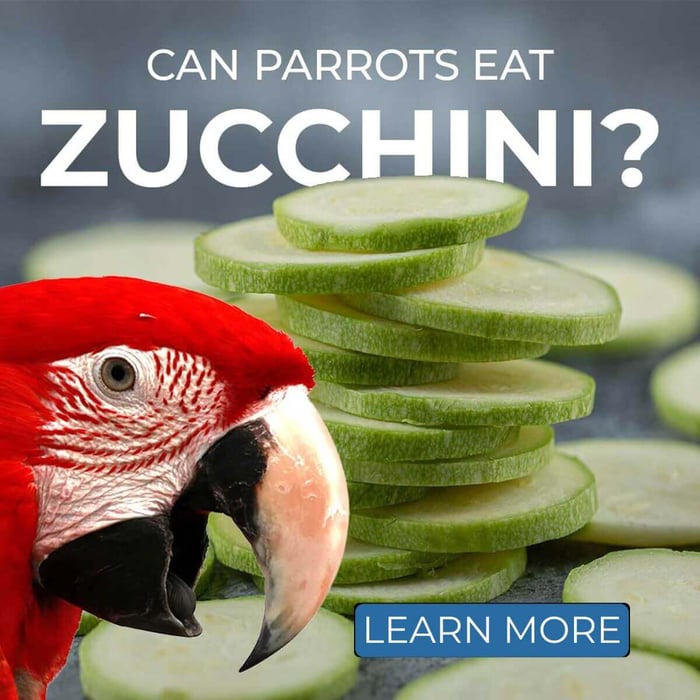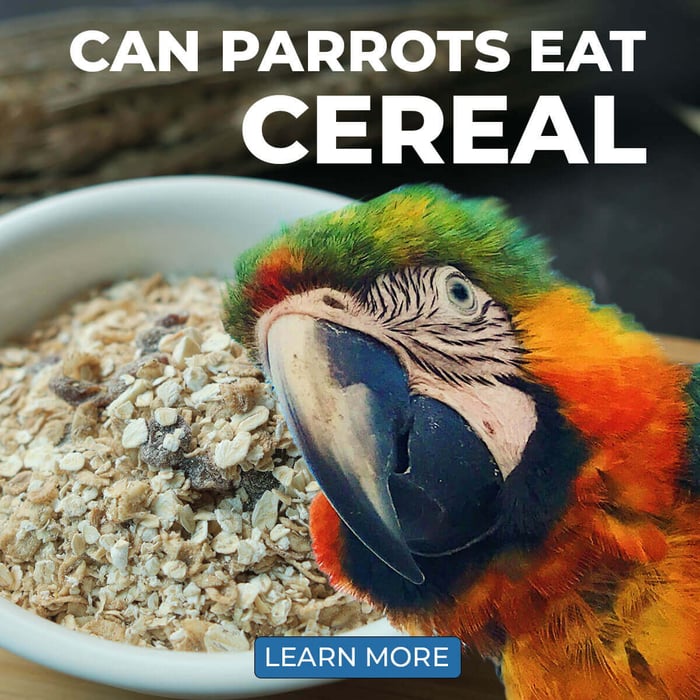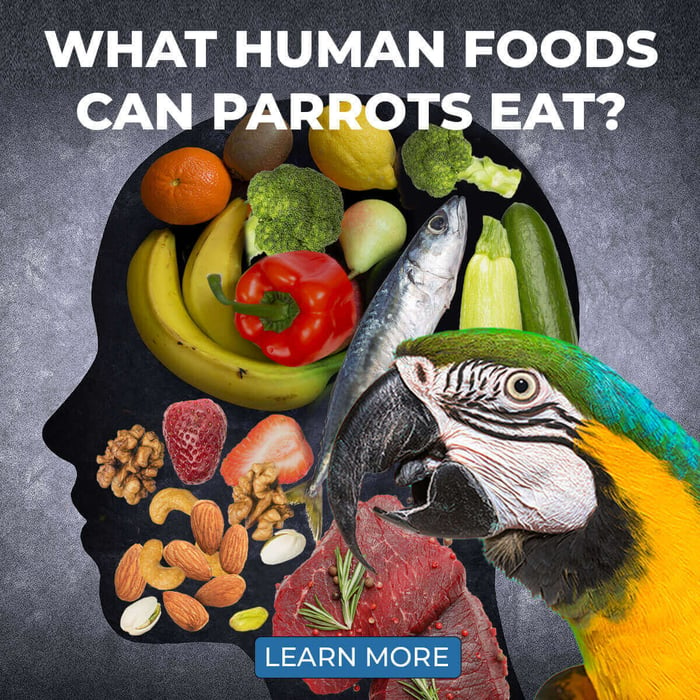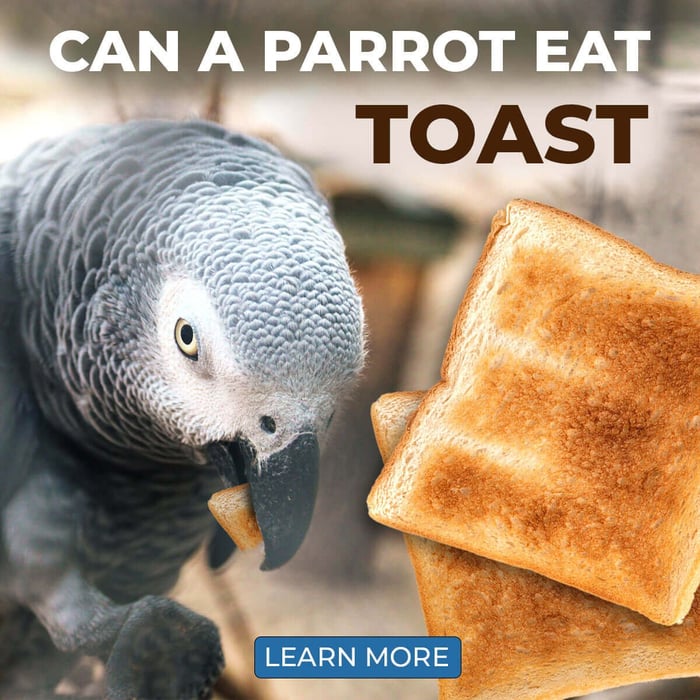Can Parrots Eat Honey?
Most pet parents or owners love to let their pets try new foods. If you have a parrot, you'll know that they want to sample everything that we eat! Because they're omnivores that thrive on a varied diet, this is usually no problem. However, there are some exceptions: not all foods are safe. It's important to be aware of what things your feathered pet can and can't eat. One of the foods you may be wondering about is honey. Can parrots eat honey?
Well, despite the fact that honey is a ubiquitous food and something that we humans eat without a second thought, it's actually not something you should be giving to your parrot. Most honey types or forms are not safe to be fed to a bird.
Studies have shown that botulism bacteria or their spores exist in unpasteurised honey. This can cause lethal respiratory complications in sensitive animals like parrots. Pair this with the fact that honey is much too sugary for our birds, and you'll understand why it's better to find another snack to share with your pet!
What Happens When Parrots Eat Honey?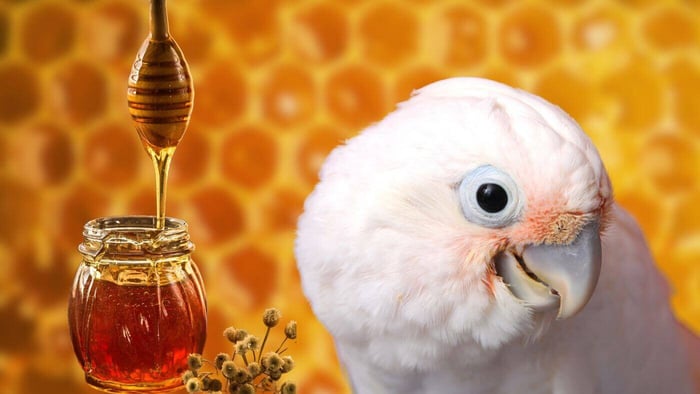
As mentioned, parrots should not consume honey. Raw honey sometimes has Clostridium botulinum, a gram-positive anaerobic bacterium that thrives on honey. This bacterium, which is normally present in the soil but can contaminate certain foods, has the potential to cause a respiratory disease called "botulism".
Botulism can be lethal to parrots. In fact, the possible presence of botulism is also why doctors and other health experts recommend against giving honey to children under one year of age.
According to Honey Bee Suite, pasteurisation does NOT kill off botulism spores in honey. This is because it's peat relatively low temperatures, often around 65 °C. To actually remove any chance of Clostridium botulinum spores surviving and thereby make honey safe for your parrot to consume, you'd have to boil it.
Botulism Bacteria In Honey
The bacteria Clostridium botulinum causes botulism. Despite it being uncommon, botulism can be deadly. It has the potential to harm the nervous system of parrots and a wide range of other birds. As mentioned in an article by healthline.com, acute paralysis and respiratory failure are some of the severe effects that botulism can have on humans. The same goes for birds.
The article emphasises the strong connection between honey and botulism bacteria: they thrive perfectly under low oxygen, sugar, and moisture conditions. All these factors are obviously available in honey and are only eliminated through boiling to destroy the botulinum spores.
Now, in humans, botulism poisoning as a result of eating honey is rare. The vast majority of cases involve children who are under six months of age. Once we age, our digestive systems become more robust and able to deal with most of the spores present in our food.
The problem is that the same doesn't go for parrots. Their bodies are just not able to deal with the presence of botulism, making them quite susceptible to toxicity.
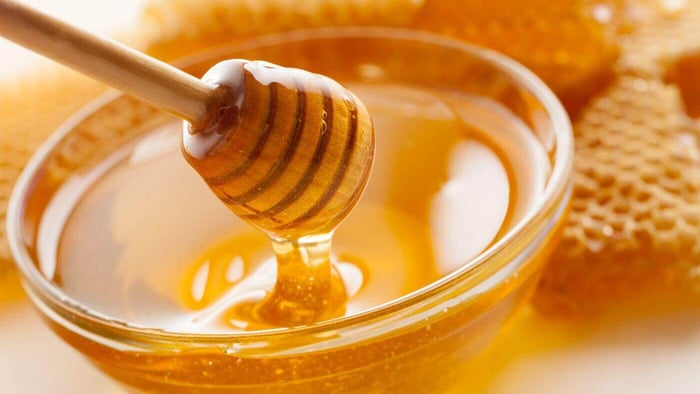
Symptoms & Treatment Of Botulism In Parrots
A study conducted in Japan shows that there are several types of botulism. Most of the bacteria's varieties mainly affect human beings, while the Type C botulinum strain has severe effects on birds. Botulism type E is also sometimes spotted in wild birds.
Health experts sometimes refer to botulism as botulism poisoning, as it's caused by toxins excreted by the bacteria it was named for. Treatment involves the administration of an antitoxin, which is something you can't really do at home. It's technically possible for some birds to recover without treatment, but there's no guarantee at all that an affected parrot will make it without medical assistance.
The most prominent symptom of botulism is paralysis. It starts at the legs and then works its way up, eventually causing breathing problems if left untreated.
Here's how you recognise botulism in a bird:
- Inability to fly
- Inability to stand, perch or walk
- Inability to hold head up
- Lethargy and listlessness
- Third eyelid closed
- Difficulty breathing
Health experts insist on the right treatment of botulism right away, as it can be deadly to your bird. If your parrot shows any signs of botulism, you should take your parrot to the vet immediately. Don't try to give antibiotics (which don't help at all) or other home remedies; you need the help of a professional.
A vet will be able to identify the botulism strain, administer the antitoxin and tell you how you should care for your parrot at home as it recovers.
Did you know? Reports by Cornell Wildlife Lab show that 10,000-50,000 wild birds perish every year because of this bacteria. Just in case you needed a little more confirmation on why your parrot shouldn't eat honey and why it's important to contact your vet if it does.
Can I Make Honey Safe For My Parrot?
Yes, it is possible to make honey safe for a parrot to eat. In order to do so, you need to boil it at a temperature of at least 80 °C for 10-20 minutes. Unlike pasteurisation, which is done at lower temperatures, this kills any botulism spores.
Whether your parrot should actually be eating "bird-safe" honey is a different discussion. There are some popular parrot treats that have it – like honey seed stick treats and honey water, which is used to administer sugar and electrolytes to sick birds – but remember, honey is extremely high in sugar.
You can offer boiled honey in very small amounts as a treat, as parrots do like the sweet flavour. Just try not to make it a habit. If yours has a big sweet tooth, try something like fresh fruit or jelly fruit cups rather than letting it snack on honey.
Remember: parrots do not know what to eat or not. Despite being intelligent, they won't be able to tell if a particular food item is safe for them to eat. It's up to you to inform yourself and keep potentially dangerous foods away from your bird.
What Should I Feed My Parrot?
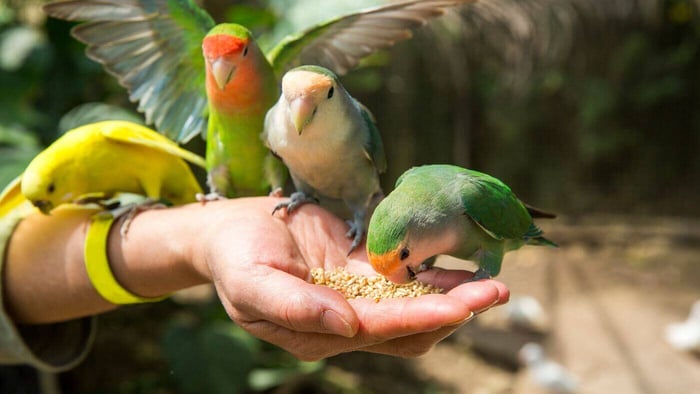
Parrot parents should feed their birds a high-quality prepared pellet diet, according to veterinarians. Pellet diets may appear monotonous to us, but they ensure our parrots receive the nutrition they require to stay healthy.
To prevent boredom and ensure your parrot gets all the (micro)nutrients it needs, you can supplement its diet with a range of other foods, including fresh vegetables and fruit, (sprouted) seeds, cooked grains and much more.
What Else Can't Parrots Eat?
Avoid letting your parrot eat any foods that contain avocado, chocolate, caffeine, or alcohol. They are extremely harmful to parrots and birds in general since they often cause fatal health effects that can even result in death.
Similarly, avoid deep-fried, salted, or fatty foodstuffs.
Conclusion: Can Parrots Eat Honey?
The answer to the question, "can parrots eat honey?" is a pretty resounding no. The possible presence of botulism spores, even in pasteurised honey, makes this food dangerous to your parrot. Botulism poisoning is a potentially deadly disease that causes paralysis and requires immediate medical attention.
Although birds love the sweet taste of boiled (and therefore safe) honey, they really don't need that much sugar in their diet. As such, we personally opt not to give it to our parrots at all. If we want to use a sweetener, we go for something like agave syrup, which has never been associated with any form of botulism.
Shop for healthy parrot-safe Honey Treats Here
FAQs On 'Can Parrots Eat Honey?'
What Should I Do If My Parrot Accidentally Eats Honey?
First off, don't panic! Although botulism can happen, there's no guarantee. Your bird will most likely be fine. Just get in touch with an avian veterinarian immediately and see what they say. You'll get instructions on what to do, what possible symptoms to look out for and whether to bring them in.
Can A Parrot Die From Eating Honey?
Yes, it technically can. It's not common, but botulism poisoning is a real risk, so we'd say it's better to be safe than sorry! Even small amounts of botulism spores can cause nasty symptoms. Between the worry, the trauma and the vet bills, just go for a different sweetener if you want to use one.
Double-check the food your parrot recently ate if they seem ill and you're not sure why. If you learn it may have gotten into some honey (or other foods that can have botulism spores, like some home-canned vegetables, some processed fish and some processed meats), seek medical attention immediately.
Can A Parrot Eat Something That Contains Honey Flavouring?
As long as you're sure the honey has been boiled at some point to kill off any botulism spores, technically, yes. However, it can be difficult to figure out whether a honey-flavoured product has been treated in this manner. On top of that, you may as well look for something more nutritious and less sugary anyway: there are many, many options that are far healthier.
Do Parrots Like Honey?
Yes, they do; because honey has a sweet flavour that entices them despite the health risk. However, despite their apparent fondness for it, as you've hopefully concluded by now, you shouldn't allow your parrot to eat honey.
References
https://www.ncbi.nlm.nih.gov/pmc/articles/PMC6167343/
https://cwhl.vet.cornell.edu/disease/botulism#collapse3
https://www.nj.gov/agriculture/divisions/ah/diseases/botulism.html

